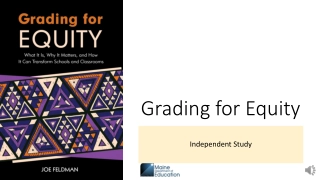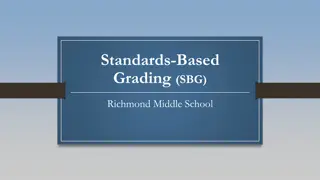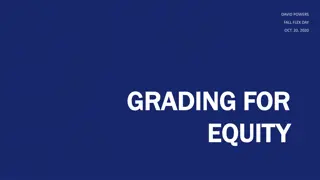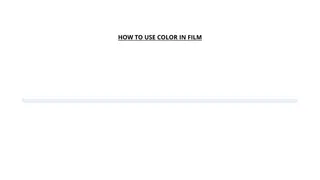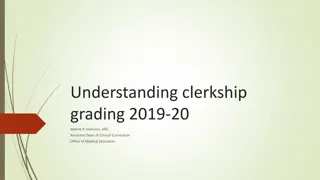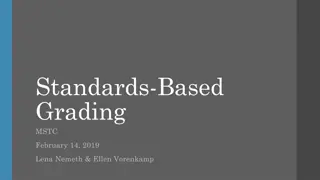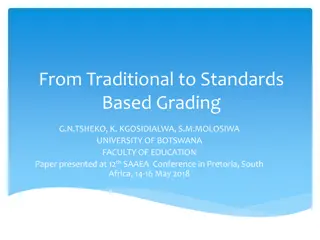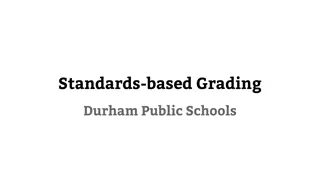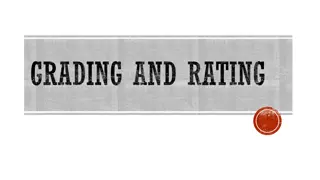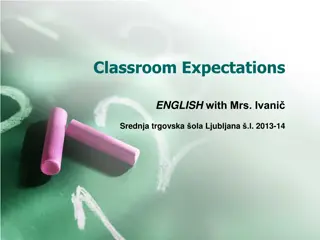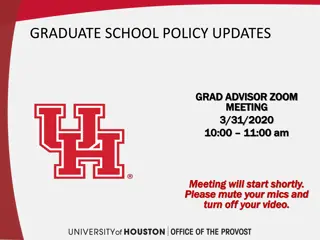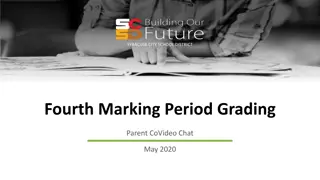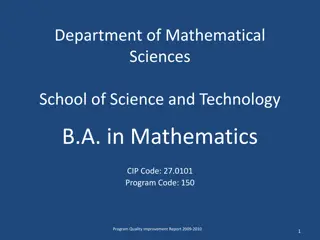Enhancing Mathematical Learning Through Innovative Grading Techniques
Valparaiso University implemented an alternative grading system in their calculus courses to improve student performance, particularly for underrepresented minority and first-generation students. The standards-based grading method emphasized deep understanding of essential topics, leading to better mastery and overall course outcomes. By rethinking traditional grading practices, the university aimed to enhance access, equity, and success for all students.
Download Presentation

Please find below an Image/Link to download the presentation.
The content on the website is provided AS IS for your information and personal use only. It may not be sold, licensed, or shared on other websites without obtaining consent from the author. Download presentation by click this link. If you encounter any issues during the download, it is possible that the publisher has removed the file from their server.
E N D
Presentation Transcript
Changing Instruction through Alternative Grading and Course Innovations Jenna Van Sickle and Zsuzsanna Szaniszlo Valparaiso University
Background Valparaiso University is a small, private, Midwest university with approximately 2,700 students Received NSF IUSE Grant #2120720, Transforming Foundational Mathematics with Interdisciplinary Co-requisite Course Developed a 1-year extended calculus course Algebra Precalculus Calculus I Standards-based grading Replaced prerequisite sequence
Need for the Course Calculus I Students (No Prerequisite) Passed 576 Mean Calc I Grade (only passing students) 3.147 N 659 Std Dev (only passing students) 0.789 Pass Rate 0.874 Calculus I Students (All Prerequisites/Corequisites Combined) Passed 71 Mean Calc I Grade (only passing students) 2.265 N 120 Std Dev (only passing students) 0.733 Pass Rate 0.592
URM and First-gen Students Both underrepresented minority and first-generation college students are overrepresented in prerequisite courses and have lower pass rates in Calculus I 22.3% of URM students took prerequisite courses while only 13.2% of non-URM students did 19.4% of first-gen students took prerequisite courses while only 14.7% of non-first-gen students did In order to increase access and equity for URM and first-gen students, improving courses for underprepared students is essential
Course Structure Not remedial started with limits Algebra and precalculus topics were introduced as needed Standards-based grading 32 Student Learning Objectives were identified (18 designated as essential) Students needed to demonstrate proficiency 2 times Each objective was assessed 4 times 3-step scale for grading Meets expectations (complete and correct) Revision needed (minor mistake) Insufficient
Standards-based grading Requires a much higher level of understanding Students must completely understand the essential topics More topics mastered earns a higher grade Students cannot pass with a mediocre understanding of everything Failed attempts are not fatal Instructor preferred this grading method, many students did as well
Student Performance First semester: 31 students started the course 21 passed, 15 continued to second semester 6 withdrew 4 failed Second semester: 15 students started the course 14 passed 1 withdrew Second semester Average passing grade for Calc I for those who passed was 2.56 (SD 0.775) Hard to compare with traditional courses
Performance Comparison Prerequisite Placement Course Rate of Perseverance and Passing Traditional Prerequisite/Calc Sequence Rate of Perseverance and Passing Extended Calculus Intermediate Algebra 26.8%, N=41 50%, N=18 34.9%, N=106 46.6%, N=30 College Algebra 41.5%, N=65 41.7%, N=12 Precalculus 41.6%, N=48 0%, N=1
Student survey 41% preferred standards-based grading 23% were neutral 36% preferred typical grading
Student survey 41% of students said that they studied more than usual 45% said that they studied the same as usual 9% said that they studied less than usual
Student survey How has your confidence in your math skills changed since August? 72% of students said that their confidence has grown or increased in that time One student said, I think my confidence has changed majorly. I now teach my family math lessons for fun. How much/little did you learn in this class? 82% of students indicated that they learned a lot. One student said, I learned a lot and feel much better about continuing my education in math classes.
Thank you! Questions?


